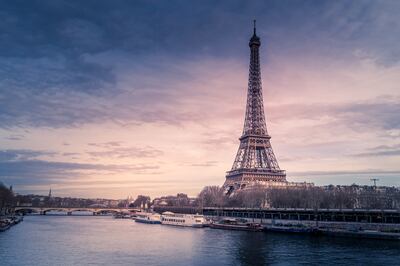The Netherlands is entering a strict lockdown over Christmas and New Year as it tries to slow the spread of the highly-contagious Omicron variant.
All non-essential shops and services, including restaurants, hairdressers, museums and gyms will be closed from Sunday until January 14. All schools will be shut until at least January 9.
“The Netherlands is going into lockdown again from tomorrow,” caretaker Prime Minister Mark Rutte said. The move was “unavoidable because of the fifth wave caused by the Omicron variant that is bearing down on us” and spreading faster than feared, he said.
Other European countries have also announced new restrictions, including France, Germany and Ireland.
A failure to act would likely lead to “an unmanageable situation in hospitals”, Rutte said.
Other measures in the lockdown rules include a recommendation that households receive no more than two visitors and that gatherings outside are also limited to a maximum of two people.
“We all know someone who needs some extra attention these days. Keep looking out for each other,” Rutte said.
“Christmas is the festival of hope and of light in the dark. And we have previously proven together that we as a society can handle a lot. Together we will overcome this period again.”

France has imposed “drastically tighter” travel restrictions on passengers from the UK. The country has also cancelled all official New Year's Eve celebrations and firework displays.
The French government said travellers from Britain must have a compelling reason for their trip which could not be tourism or business, a move that came into effect at midnight on Saturday. French nationals and their families are exempt.
Travellers who are permitted to enter will need to show proof of a negative Covid-19 test and people returning to France from the UK will need to self-isolate for a week.

All UK arrivals will need to present a negative PCR or antigen test taken within 24 hours, extended from 48 hours, and will have to quarantine in France for seven days, which can be reduced to 48 hours if they have a new negative test.
On Friday, additional Covid-19 restrictions were also announced in Germany and the Republic of Ireland.
Germany designated France, Norway and Denmark as “new high-risk areas”, alongside Lebanon and Andorra. Those who are unvaccinated or who have not recovered from the virus will be subject to quarantine with the possibility of testing on day five.
Earlier this week, Italy, Greece and Portugal said both vaccinated and unvaccinated visitors from the EU will need to have a negative test result on arrival, a rule similar to Ireland.
Greece's rules come into effect from Sunday and will only apply during Christmas.

In Ireland, various measures have been taken, including a mandate that pubs, restaurants, theatres and cinemas must close by 8pm.
In Switzerland, where 9,941 new infections were recorded on Friday, travellers, whether vaccinated or not, must present a negative PCR result on arrival and be tested on days four and seven of their stay, although this is set to ease from Monday, with visitors now able to choose between a quick test within 24 hours of arrival or a PCR test within 72 hours, local media reports.
As of Monday, the popular skiing destination will also put into force new Covid restrictions on public gatherings. This includes everyone having to provide negative tests in areas where masks cannot be worn and seating is not provided, for example.
French Prime Minister Jean Castex on Friday said the Omicron variant is “spreading at lightning speed”, with France's Health minister Olivier Veran saying on Saturday that between 7 and 10 per cent of new cases in the country are thought to be Omicron.
Since the pandemic started, Europe has reported more than 89 million cases and 1.5 million Covid-related deaths, according to the latest figures from the EU.
Covid-19 cases are surging in the UK, with Britain reporting 90,418 new cases on Saturday, slightly down on the record high of 93,045 infections on Friday.


